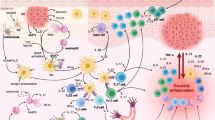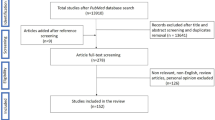Abstract
Deep dermatophytosis has been described in HIV and immunosuppressed patients. Recently, CARD9 (caspase recruitment domain-containing protein 9) deficiency has been reported in individuals with deep dermatophytosis previously classified as “immunocompetent”. We report a 24-year-old Brazilian male patient with deep dermatophytosis born to an apparently non-consanguineous family. The symptoms started with oral candidiasis when he was 3 years old, persistent although treated. At 11 years old, well delimited, desquamative and pruriginous skin lesions appeared in the mandibular area; ketoconazole and itraconazole were introduced and maintained for 5 years. At 12 years of age, the lesions, which initially affected the face, started to spread to thoracic and back of the body (15 cm of diameter) and became ulcerative, secretive and painful. Terbinafine was introduced without any improvement. Trichophyton mentagrophytes was isolated from the skin lesions. A novel homozygous mutation in CARD9 (R101L) was identified in the patient, resulting in impaired neutrophil fungal killing. Both parents, one brother (with persistent superficial but not deep dermatophytosis) and one sister were heterozygous for this mutation, while another brother was found to be homozygous for the CARD9 wild-type allele. This is the first report of CARD9 deficiency in Latin America.



Similar content being viewed by others
Abbreviations
- CARD9:
-
caspase recruitment domain-containing protein 9
- CADD:
-
Combined Annotation Dependent Depletion
References
Seebacher C, Bouchara JP, Mignon B. Updates on the epidemiology of dermatophyte infections. Mycopathologia. 2008;166:335–52.
Hay RJ, Baran R. Deep Dermatophytosis: rare infections or common, but unrecognized, complications of lymphatic spread? Curr Opin Infect Dis. 2004;17:77–9.
da Silva BC, Paula CR, Auler ME, Ruiz Lda S, Dos Santos JI, Yoshioka MC, et al. Dermatophytosis and immunovirological status of HIV-infected and AIDS patients from Sao Paulo city. Brazil Mycoses. 2014;57(6):371–6.
Lanternier F, Cypowyj S, Picard C, Bustamante J, Lortholary O, Casanova JL. Puel A Primary immunodeficiencies underlying fungal infections. Curr Opin Pediatr. 2013;25:736–47.
Lanternier F, Pathan S, Vincent QB, Liu L, Cypowyj S, Prando C, et al. Deep dermatophytosis and inherited CARD9 deficiency. N Engl J Med. 2013;369:1704–14.
Jachiet M, Lanternier F, Rybojad M, Bagot M, Ibrahim L, Casanova JL, et al. Posaconazole treatment of extensive skin and nail dermatophytosis due to autosomal recessive deficiency of CARD9. JAMA Derm. 2015;151:192–4.
Hsu YMS, Zhang Y, You Y, Wang D, Li H, Duramad O, et al. Lin X The adaptor protein CARD9 is required for innate immune responses to intracellular pathogens. Nat Immunol. 2007;8(2):198–205.
Lanternier F, Barbati E, Meinzer U, Liu L, Pedergnana V, Migaud M, et al. Inherited CARD9 deficiency in 2 unrelated patients with invasive exophiala infection. J Infect Dis. 2015;211(8):1241–50.
Lanternier F, Mahdaviani SA, Barbati E, Chaussade H, Koumar Y, Levy R, et al. Inherited CARD9 deficiency in otherwise healthy children and adults with Candida species-induced meningoencephalitis, colitis, or both. J Allergy Clin Immunol. 2015. doi:10.1016/j.jaci.2014.12.1930 [Epub ahead of print].
Saresella SMKR, Speciale L, Taramelli D, Mendozzi E, Guerini F. A rapid evaluation of phagocytosis and killing of Candida albicans by CD13q leukocytes. J Immunol Methods. 1997;210:227–34.
Gross O, Gewies A, Finger K, Schafer M, Sparwasser T, Peschel C, et al. Card9 controls a non-TLR signaling pathway for innate anti-fungal immunity. Nature. 2006;442:651–6.
Glocker EO, Hennigs A, Nabavi M, Schäffer AA, Woellner C, Salzer U, et al. Grimbacher B a homozygous CARD9 mutation in a family with susceptibility to fungal infections. N Engl J Med. 2009;361(18):1727–35.
Drewniak A, Gazendam RP, Tool ATJ, van Houdt M, Jansen MH, van Hamme JL, et al. Invasive fungal infection and impaired neutrophil killing in human CARD9 deficiency. Blood. 2013;121(13):2385–92.
Wang X, Wang W, Lin Z, Wang X, Li T, Yu J, et al. CARD9 mutations linked to subcutaneous phaeohyphomycosis and TH17 cell deficiencies. J Allergy Clin Immunol. 2013;133(3):905–908e3.
Gavino C, Cotter A, Lichtenstein D, Lejtenyi D, Fortin C, Legault C, et al. Vinh DC CARD9 deficiency and spontaneous central nervous system candidiasis: complete clinical remission with GM-CSF therapy. Clin Infect Dis. 2014;59(1):81–4.
Acknowledgments
We are grateful to Mrs Ilda Sizue Kunii, BSc and Fernanda G Weiler, MD for checking AIRE gene for mutation. This work was supported by l’Agence Nationale de la Recherche (grant HGDIFD to A.P.), and a Translational Research grant from the Jeffrey Modell Foundation (to A.P.).
Conflict of Interest
The authors declare that they have no conflict of interest.
Author information
Authors and Affiliations
Corresponding author
Rights and permissions
About this article
Cite this article
Grumach, A.S., de Queiroz-Telles, F., Migaud, M. et al. A Homozygous CARD9 Mutation in a Brazilian Patient with Deep Dermatophytosis. J Clin Immunol 35, 486–490 (2015). https://doi.org/10.1007/s10875-015-0170-4
Received:
Accepted:
Published:
Issue Date:
DOI: https://doi.org/10.1007/s10875-015-0170-4




